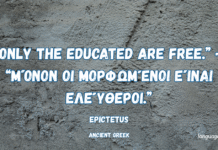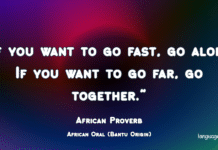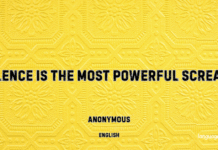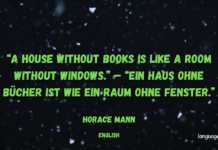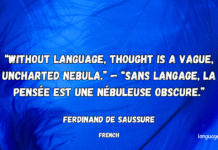“There are things one regrets even before doing them, and yet one does them.”
— Theodor Fontane Quotes
Quote:
“Es gibt Dinge, die man bereut, ehe man sie tut, und doch tut man sie.”
(“There are things one regrets even before doing them, and yet one does them.”)
— Theodor Fontane
2-Line Commentary:
This deeply introspective quote by Theodor Fontane explores the complexity of human nature—how we knowingly walk into actions we may later regret. It captures the quiet conflict between emotion, impulse, and rationality.
Description:
Theodor Fontane’s quote, “Es gibt Dinge, die man bereut, ehe man sie tut, und doch tut man sie,” translated as “There are things one regrets even before doing them, and yet one does them,” delves into the intricate fabric of human psychology. A master observer of the human condition, Fontane touches here upon a universal experience—acting against our better judgment, fully aware of the emotional toll it may carry, yet being unable to resist.
At first glance, this quote may seem paradoxical. Why would someone do something they already know they will regret? But therein lies the brilliance of Fontane’s observation. He isn’t just presenting a behavioral contradiction; he’s unveiling a deeper, internal conflict that exists in all of us—the rift between reason and emotion, impulse and reflection, desire and consequence.
The Conflict Between Knowing and Doing
Humans are not purely rational beings. We are emotional creatures driven by longing, fear, desire, curiosity, and sometimes, self-sabotage. This quote perfectly captures the tragedy of inner turmoil—the awareness that a decision might hurt us, but also the inability to resist it. Think of people returning to toxic relationships, making impulsive financial decisions, or choosing short-term pleasure over long-term gain. All of these are examples of Fontane’s insight in action.
In many cases, this type of behavior stems from emotional vulnerability. The regret we anticipate is often not enough to outweigh the emotional or psychological need we’re trying to fulfill in that moment. The brain says “no,” but the heart says “yes.” The result is action born out of weakness, habit, or desperation.
Self-Awareness and Powerlessness
One of the most remarkable aspects of this quote is its emphasis on preemptive regret. It doesn’t refer to regret that comes after making a mistake. Instead, it speaks to a more painful realization: knowing in advance that you are making a mistake and still doing it.
This level of self-awareness without the power to intervene suggests a certain helplessness. It’s like watching a slow-motion accident and being unable to stop it. That helplessness is part of what makes this quote so poignant—it speaks to the human struggle for self-control, and how even those who are aware of their flaws and patterns can fall victim to them.
Why Do We Still Do It?
Despite knowing better, we still proceed. Why? The answer lies in a combination of psychological and emotional factors:
-
Impulse vs. Discipline: Sometimes, the urge is simply too strong. People act on temptation, knowing the aftermath will bring guilt.
-
Hope: We deceive ourselves into thinking that “this time” will be different.
-
Need for Escape: Some actions are driven by the desire to escape pain, boredom, or loneliness—even temporarily.
-
Emotional Programming: Deep-rooted behaviors or trauma responses can override rational thought.
-
The Thrill: Sometimes, the allure of doing something forbidden or risky is itself intoxicating.
Understanding these motivations is crucial in building self-awareness and, ultimately, control.
Fontane’s Literary Wisdom
Theodor Fontane, a prominent German novelist and poet of the 19th century, had a gift for psychological depth. Known for works like Effi Briest, Fontane explored the complexities of moral decisions, emotional suppression, and the conflict between societal norms and personal desires. His writing was filled with understated wisdom and a haunting sense of melancholy, making this quote an embodiment of his literary voice.
Relevance in Modern Life
Even in the 21st century, Fontane’s words remain astonishingly relevant. In a world filled with distractions, choices, and conflicting values, we often find ourselves in similar situations:
-
Digital Temptations: Doom-scrolling, binge-watching, or online shopping—despite knowing it will waste time or money.
-
Personal Relationships: Reaching out to someone who hurt us, hoping for closure or reconnection.
-
Health & Habits: Eating junk food, skipping workouts, or neglecting sleep, knowing we’ll regret it.
In these examples, we aren’t ignorant of the consequences. We walk in with our eyes open—and that’s what makes this quote so chilling and honest.
Reflection and Growth
However, this quote doesn’t merely describe a weakness—it invites reflection. It challenges us to examine the why behind our choices. By understanding what drives us to commit acts we know are unwise, we move closer to emotional intelligence and self-regulation.
This quote can be a powerful prompt for journaling, therapy, or self-exploration. It reminds us that regret doesn’t only teach us lessons after the fact—it also attempts to warn us beforehand. Whether or not we listen is up to us.
Conclusion
Theodor Fontane’s quote is a haunting and beautiful articulation of the inner conflicts that define human experience. It doesn’t promise resolution, nor does it offer moral judgment. Instead, it captures a quiet truth—sometimes, we make choices knowing full well their consequences, and we do so anyway.
It speaks to vulnerability, imperfection, and the longing for something more—something worth the risk of regret. In this way, the quote becomes more than a statement—it becomes a mirror, reflecting the complexity of our decisions and the delicate balance between desire and reason.






